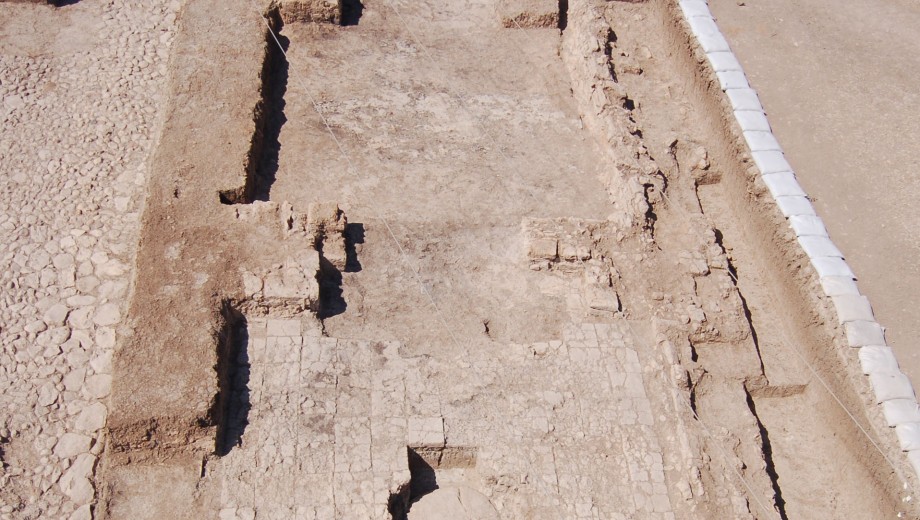In his work directing the Tayinat Archaeological Project, Timothy Harrison made a discovery that sheds light on ancient imperial power.
Harrison, AM’91, PhD’95, is interested in how small polities in the Eastern Mediterranean existed in tension with larger states. Imagine, the University of Toronto archaeologist says, a society in the Levant that consists of a loose network of settlements occupying “a single valley or coastal plain or mountain range,” 30 or 40 kilometers in diameter, containing a few thousand people who do not wish to swear allegiance to a regional power like the Assyrians. How did societies like this attempt to maintain their autonomy, and what mechanisms did greater powers use to keep them in check?
A succession of small kingdoms or statelets seem to have had their capital at what is now Tell Tayinat, an archaeological mound located on a plain near the Orontes River in southeastern Turkey, close to the Syrian border. According to Harrison, these included the Iron Age city of Kunulua, the seat of a neo-Hittite/Aramaean kingdom that enjoyed a couple of centuries of independence before being incorporated as a province of the neo-Assyrian Empire in the eighth century BCE.
A discovery unearthed by Harrison’s team at Tell Tayinat in 2009 shows one way the Assyrians codified and enforced their power. In a newly discovered temple measuring 9-by-21 meters, they discovered—in addition to libation vessels, glazed pottery, and numerous tablet fragments consistent with a temple library—what is known as an Esarhaddon Succession Treaty.
“We found this large cuneiform tablet on the podium in the inner sanctum,” Harrison says, “in the Holy of Holies, if you will, of the temple.”
The 28-by-40-centimeter tablet was discovered in fragments but has since been reconstructed. Dated to 672 BCE, it was not intended to be a treaty among equals. It was a notice disseminated to provincial capitals throughout the neo-Assyrian empire—a sort of imperial memo—that unilaterally imposed an oath of loyalty to King Esarhaddon’s son Assurbanipal. Esarhaddon had reason to be sensitive about this matter: his own planned ascent to the throne almost didn’t occur when civil war erupted after his overlooked older brothers murdered his father. He was hoping for a smoother transition in the case of his own named successor.
Reconstruction of the text shows the oath to be thorough and stern. According to a paper by the project’s epigrapher (inscriptions expert), Jacob Lauinger, AM’01, PhD’07, curses awaiting violators ranged from their doors not opening to their being struck down, along with their sons and daughters, “like a spring lamb.”
While this is not the first copy of the treaty to be discovered, it is an unusually complete one, bringing out new elements of the text for scholars to study. For instance, the new copy “demonstrated that everyone in the empire, not just so-called vassal kings on the empire’s margins, swore an oath of loyalty to the Assyrian king,” says Lauinger. “This loyalty oath created a relationship between imperial subject and king that was the literal and figurative substance that held the neo-Assyrian empire together.”
Harrison says the discovery has inspired numerous articles and books in, among other fields, biblical transmission history. Since parts of this tablet resemble certain legal texts included in the Hebrew Bible, researchers think it is possible that another copy—perhaps one that was held in ancient Jerusalem—formed the basis of those texts.
It is difficult to measure the treaty’s actual effect on imperial subjects at the time. What is clear is that Assurbanipal did come to rule the empire, at the time the largest in the history of the world, from Esarhaddon’s death in 668 BCE until his own death in 631 BCE. He is now remembered as the last great Assyrian king, in part for constructing the world’s first significant library—the Library of Assurbanipal, which held more than 30,000 clay tablets in a variety of languages in the Assyrian capital of Nineveh (modern Mosul, Iraq).

